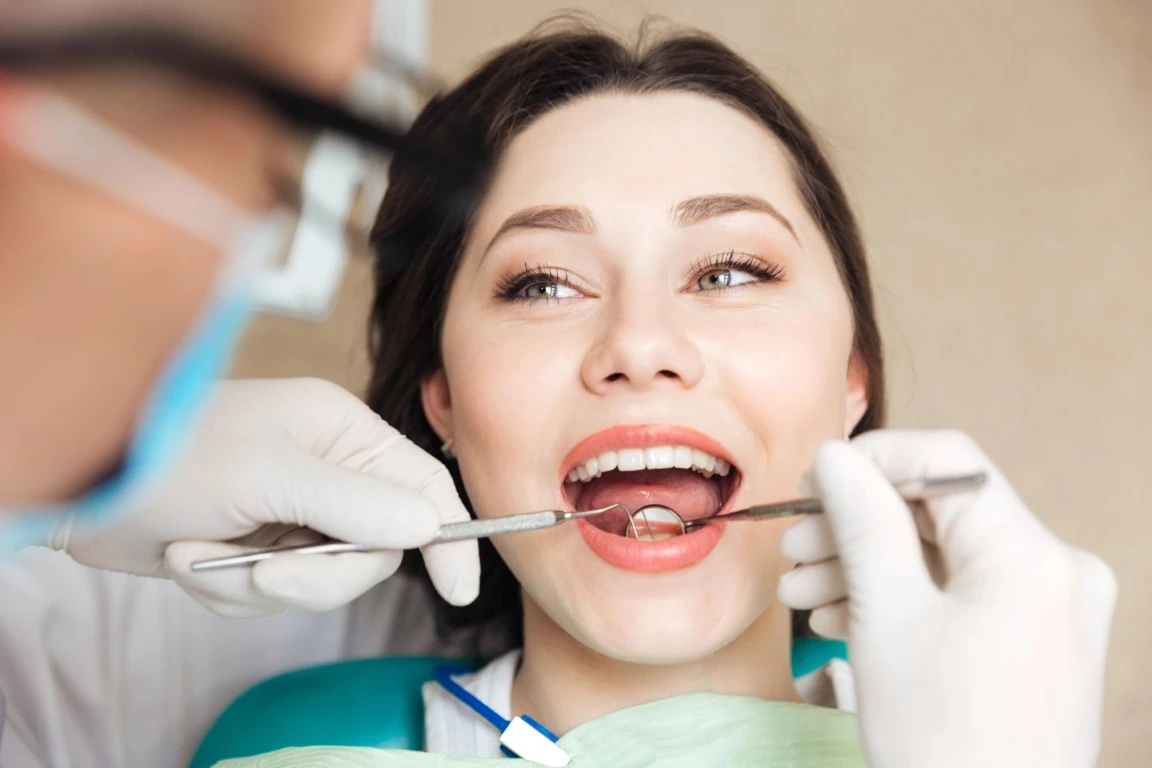
DENTAL EMERGENCIES
Dental Emergencies in Pleasant View and North Ogden, Utah
Dental emergencies don’t follow a schedule. One moment you’re enjoying lunch, and the next you’re dealing with a sharp toothache, a chipped tooth, or even a knocked-out molar. Whether it’s sudden pain, trauma, or swelling, knowing you have a trusted local dentist who can act fast makes all the difference. That’s exactly what we offer at Mountain View Dental in Pleasant View and North Ogden, Utah.
When your smile is on the line, we prioritize your care and aim to see you the same day. Dental pain doesn’t get better on its own—and waiting often makes the problem worse. Our team is ready to take your call, assess your symptoms, and get you in the chair as quickly as possible.
What Counts as a Dental Emergency?
Not every discomfort requires an urgent dental visit, but there are certain signs you shouldn’t ignore. A dental emergency typically involves severe pain, bleeding, trauma to the mouth, or any situation that threatens the long-term health of your teeth and gums.
Minor issues like mild sensitivity or a loose crown can usually wait a day or two. But if you’re dealing with swelling, bleeding, intense pain, or trauma to your teeth, you need to be seen right away. At Mountain View Dental, we recognize the urgency and do our best to treat emergencies ahead of regular appointments.
Common Dental Emergencies We Treat
Severe Toothaches
If your toothache is more than a dull ache—especially if it comes with swelling, bleeding, or throbbing pain—it’s time to act. While some pain can be caused by food stuck between teeth, more serious cases may involve decay, infection, or abscesses. A quick rinse with warm water and gentle flossing may offer relief, but if the pain persists or worsens, call us immediately. Applying a cold compress can help manage the discomfort until your appointment.
Knocked-Out Tooth
Few things are more alarming than having a tooth knocked out. Whether from a sports injury, accident, or fall, time is critical. If you can find the tooth, rinse it gently (avoid scrubbing), and try to place it back in the socket if possible. If that’s not doable, keep it in a container of milk or saliva and call us right away. Teeth have the best chance of survival when reinserted within an hour.
Dislodged or Partially Knocked-Out Tooth
A tooth that has been shifted or dislodged can cause intense pain and requires fast intervention. While you wait to be seen, apply a cold compress and avoid chewing on the injured side. Pain relief medication can help take the edge off until we can stabilize and assess the damage.
Chipped or Broken Teeth
Whether caused by biting something hard or an accidental fall, chipped and broken teeth are a common dental emergency. If you’re able to find the broken pieces, bring them with you to your appointment. In the meantime, rinse your mouth with warm water and apply gauze if there’s bleeding. A cold compress can reduce swelling.
Abscess or Dental Infection
An abscessed tooth is a serious—and often painful—condition involving infection at the root or between the tooth and gums. Left untreated, the infection can spread to other parts of the mouth and body. Symptoms include persistent throbbing, swelling, pus, fever, or a bad taste in your mouth. Abscesses can cause long-term damage and must be addressed immediately.
Lost Fillings and Crowns
Losing a filling or crown might not seem like an emergency, but it can expose the tooth and cause increased sensitivity or damage. If you lose a filling, you can temporarily seal the cavity with over-the-counter dental cement until we can fix it. If a crown comes off, save it and bring it to your appointment—we may be able to reattach it.
Broken Braces or Loose Brackets
If you’re wearing traditional braces and experience broken wires or loose brackets, you know how uncomfortable it can be. It may not always seem urgent, but these issues can delay your orthodontic treatment and cause cuts or sores inside your mouth. A quick fix now can save you from long-term setbacks.
Soft Tissue Injuries
Injuries to your tongue, lips, cheeks, or gums that involve bleeding or swelling should be taken seriously. While some cuts and scrapes heal on their own, persistent bleeding or significant pain means you should get checked out. Applying gentle pressure and a cold compress can help manage symptoms before your visit.
What to Do If You’re Experiencing a Dental Emergency
If you’re in Pleasant View or North Ogden and you’re dealing with a dental emergency, don’t wait. Call Mountain View Dental right away. Even if you’re unsure whether your situation is urgent, it’s better to let our experienced staff help you determine the right next step.
Here are two general guidelines to follow until you can be seen:
- Stay calm. Panicking increases stress and discomfort. Focus on managing symptoms and getting to our office safely.
Call us first. We’ll talk through what you’re experiencing and either get you in quickly or direct you to the nearest ER if the issue is beyond dental care (like a broken jaw or facial trauma).
How Mountain View Dental Handles Emergencies
At Mountain View Dental, we don’t offer after-hours appointments, but we’re fast to respond during our open hours. When you call us with a dental emergency, we shift our schedule to make room for you. Emergency patients are prioritized over regular appointments so you can get relief and start healing sooner.
Our dental team is trained to handle everything from infections to trauma with compassion, speed, and expertise. Whether it’s repairing damage, relieving pain, or preventing further complications, we’re here for you.

Serving Our Local Community
We’re proud to serve the families and individuals of Pleasant View and North Ogden. When emergencies strike, it helps to have a dental team that understands your needs and cares about your well-being—not just your teeth. We believe in treating people, not just symptoms.
Dental emergencies are stressful—but you don’t have to handle them alone. If you need help now, reach out to Mountain View Dental. Relief is just one phone call away.
Facing a dental emergency in Pleasant View or North Ogden?
Call Mountain View Dental today—we’ll get you in fast, fix the problem, and help you feel like yourself again.
Elevate your dental experience!
Dental Emergencies FAQs
-
What Qualifies as a Dental Emergency?
A dental emergency typically involves severe pain, uncontrolled bleeding, or trauma to the teeth, gums, or jaw. Common examples include knocked-out teeth, cracked or fractured teeth, severe toothaches, abscesses, and excessive bleeding after oral surgery. If you’re experiencing these symptoms, seek immediate care from an emergency dentist to prevent further complications. Learn More -
How Should I Handle a Knocked-Out Tooth?
If your tooth is knocked out, pick it up carefully by the crown (avoid touching the roots), gently rinse it with water without scrubbing, and try to reposition it back in its socket immediately if possible. If you can’t reinsert it, place the tooth in milk or saliva and get to an emergency dentist within 30-60 minutes to maximize the chances of saving the tooth. Learn More -
Is a Chipped Tooth Considered a Dental Emergency?
A chipped tooth isn’t always an emergency, but it requires prompt attention. If you experience sharp pain, bleeding, or sensitivity, it’s best to see an emergency dentist as soon as possible. Even minor chips should be evaluated quickly to prevent further damage or infection and to restore normal function. Learn More -
What Can I Do Immediately for Severe Tooth Pain?
Severe tooth pain often signals an infection or decay requiring urgent care. Immediately rinse your mouth with warm salt water, floss gently to remove any trapped debris, and take over-the-counter pain medication as needed. Contact an emergency dentist promptly to diagnose the underlying cause and provide proper treatment to relieve your pain and prevent further damage. Learn More -
When Should I Go to the Emergency Room for a Dental Problem?
Visit the emergency room for dental issues only when experiencing life-threatening symptoms, such as severe swelling causing difficulty breathing or swallowing, significant trauma to the face or jaw, or uncontrollable bleeding. For non-life-threatening emergencies, it’s better to contact an emergency dental clinic, which is equipped specifically to handle urgent dental problems efficiently and effectively. Learn More
